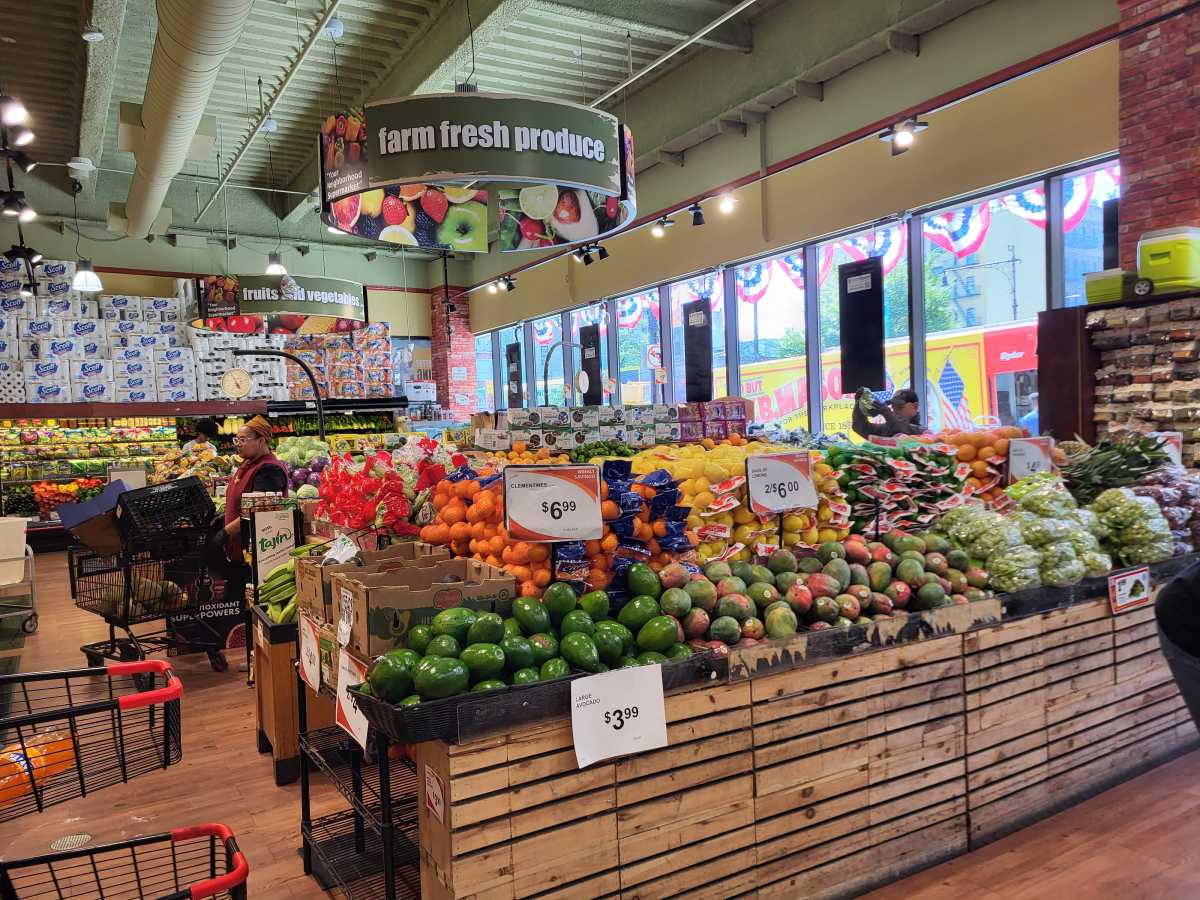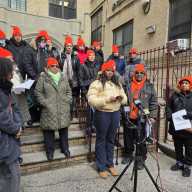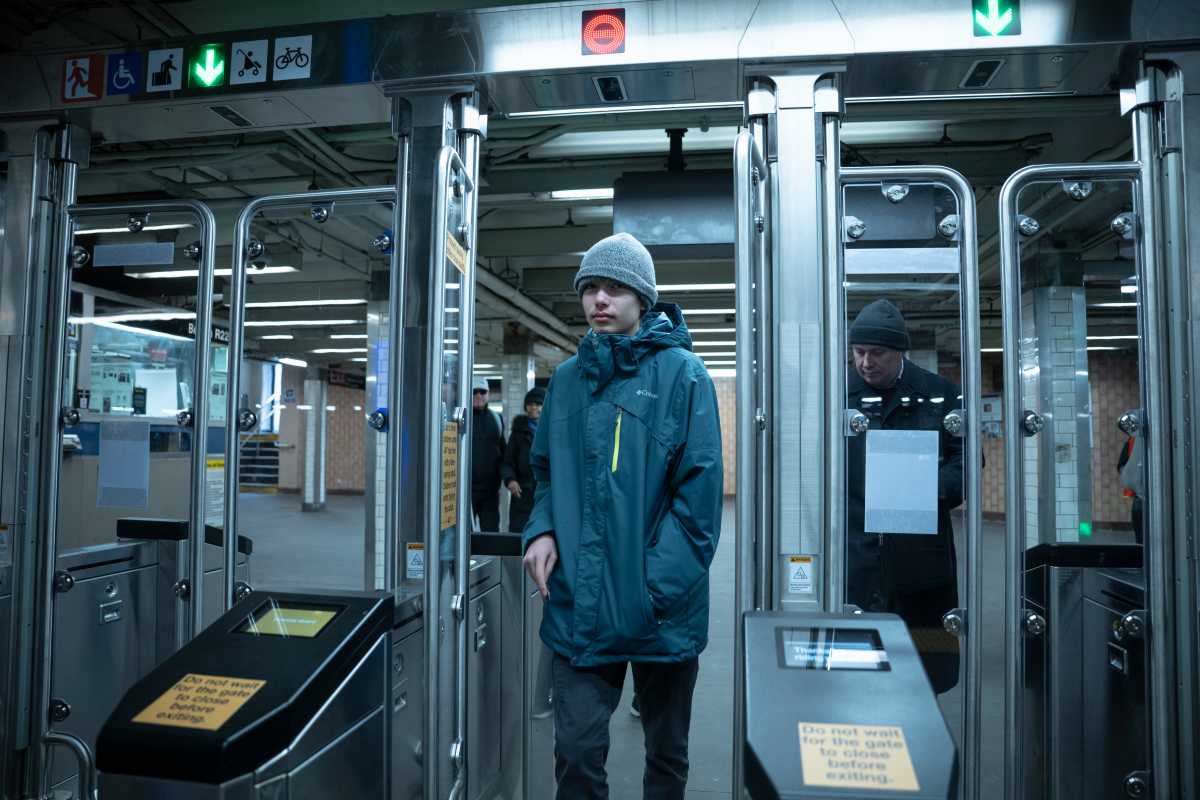Grocery store managers are raising concerns about the Trump administration’s cuts to SNAP benefits, which they say are likely to harm not only households but local businesses that depend on customers’ food dollars.
Kristie Pimentel, manager of Super Fresh East 149, has been all-in at her family’s grocery business since 2021, after a stint in corporate advertising. Members of her family on both sides have owned grocery businesses in the Dominican Republic, and her father, Frank, “eats, lives, breathes supermarkets” as the owner of two stores in the Bronx, Pimentel said.
Now, as she runs the South Bronx store from morning to night, Pimentel said she is “here in the nitty-gritty every day,” seeing firsthand how people spend their food budgets. Having grown up in the industry, “A lot of these customers, I’ve known them forever,” she said.
What Pimentel said she sees at Super Fresh is that many people are barely staying afloat now. “They’re already trying really hard to stretch their dollars as much as they can.”
But under the Trump administration’s “Big Beautiful Bill,” which slashed $300 billion in SNAP funding through 2034 — an unprecedented cut of about 30% — major changes are likely coming for customers and store operators alike.
Approximately half a million Bronxites, or one-third of the borough, currently rely on SNAP benefits and likely don’t have wiggle room in their budget to make up for cuts: a February survey by the nonprofit No Kid Hungry found that 53% of New Yorkers reported an increase in debt over the past year due to rising food prices.
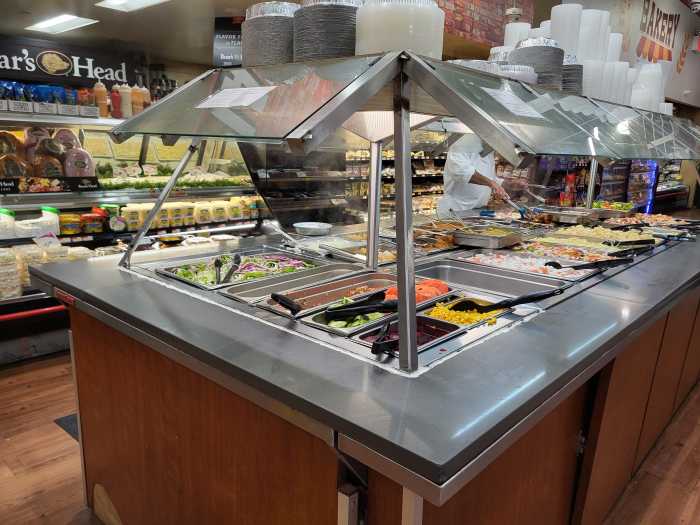
Pimentel said “a huge portion” of the store’s sales come from SNAP dollars and that cuts could threaten the store’s ability to stock fresh, healthy products and keep staff employed.
Every $1 in SNAP benefits generates approximately $1.50 of economic activity at local bodegas and stores, according to the nonprofit City Harvest.
‘You can’t really plan ahead’
While the Pimentel family stores are technically under the umbrella of Key Food, they are individually operated and connected to the community through city and nonprofit partnerships, said Pimentel. In particular, Super Fresh caters to SNAP recipients and promotes public health.
The store participates in what Pimentel called an “amazing” city program, Get the Good Stuff, which matches shoppers’ SNAP dollars spent on fresh vegetables, fruits and beans, up to $10 per day. SNAP recipients can sign up for the program inside the store.
Super Fresh also partners with City Harvest on its Nutrition and Culinary Education initiatives and with the nonprofit BronxWorks, which holds in-store cooking demos with new recipes once per month. Small cards on items throughout the store, such as plantains and limes, identify healthy items and give tips on how to use them.
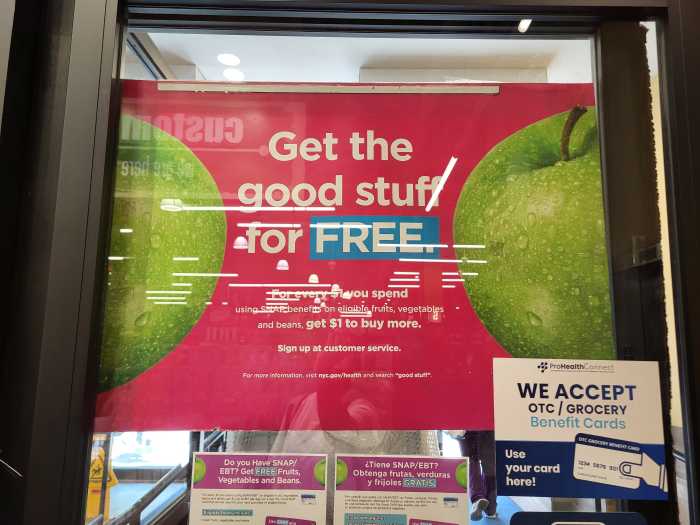
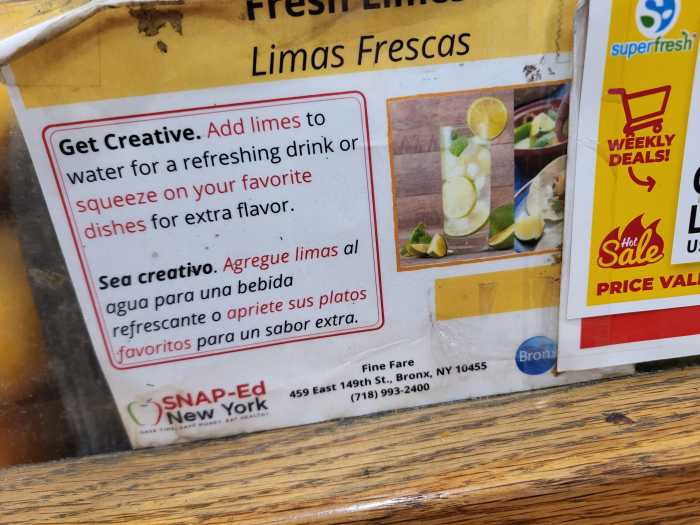
But Pimentel said the SNAP cuts will only hurt people who are already struggling. She said many customers, including seniors, spend extra time store-hopping for the best discounts, and some can’t even spare 33 cents for a reusable bag.
The prospect of cutting food for low-income people makes no sense, said Pimentel. “That’s not the place we should be cutting back on spending,” she said. “For our customers, it breaks my heart, really.”
When buyers have less to spend, a “kind of trickle effect” will likely set in and impact in-store decision-making, said Pimentel. Supermarket profit margins are already slim, especially on essential items such as milk and eggs, where the price can only be set so high.
The looming SNAP cuts have created a “scary” level of uncertainty around how much to keep in stock, where to set prices and what items people will skip when they have fewer SNAP dollars, Pimentel said.
“Now, you can’t really plan ahead. You kind of have to wait until the ball drops and then you figure out how to move around it.”
The grocery business has always had its challenges — especially as an essential business that remained open during the height of the pandemic — but stores like Super Fresh are important in a borough that lacks high-quality, full-service supermarkets.
“There is, I think, kind of like this moral responsibility to make sure that you stay in business because your customers are also depending on you,” said Pimentel.
With the major SNAP cuts coming, she said her family’s store will try to help fill the gap. “However we can help, we’re gonna have to step it up.”
They may need to explore better discounts, fundraising and other efforts as the cuts begin to hit home, which will likely begin in the fourth quarter of the year, Pimentel said.
“As a business in the community, you have to understand that your community is what funds what you do, so there are times when you have to turn around and see, what can I do for them?”
This story was updated Aug. 21 at 10:30 a.m. to reflect the correct number of stores owned by the Pimentel family.
Reach Emily Swanson at eswanson@schnepsmedia.com or (646) 717-0015. For more coverage, follow us on Twitter, Facebook and Instagram @bronxtimes

